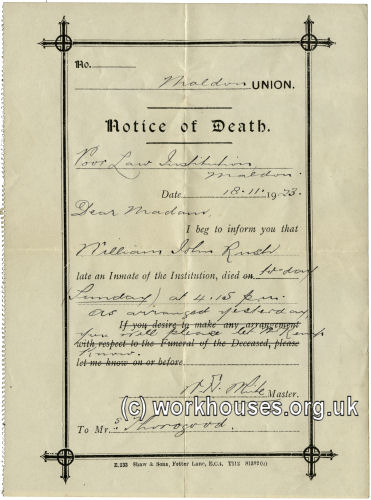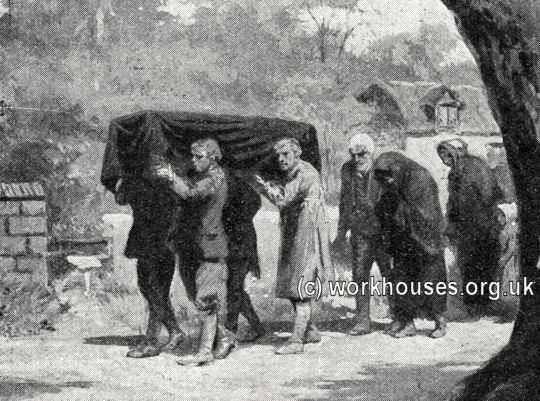Popular Myths about the Workhouse
Myth 9 - If you died in a workhouse, you'd be buried in unconsecrated ground.
If a workhouse inmate died, their relatives would be contacted and could, if they wished, remove the body and arrange a funeral themselves. If no-one came forward, the funeral would be arranged by the workhouse. This would typically be in a cheap coffin, in a multi-occupancy public grave (sometimes referred to as a "pauper's grave") in a local cemetery. Such graves were usually in a special area of the cemetery reserved for such purposes.

Maldon workhouse death notice, 1923. © Peter Higginbotham
The term "consecrated" usually means having been blessed by a Church of England priest and therefore "holy" only for Anglicans. Most cemeteries have a consecrated section for Anglicans and a separate unconsecrated section for non-conformists. Parts of the unconsecrated section, or even individual graves, may be consecrated according to the rites of other faiths such as Roman Catholicism. The area used for pauper graves was normally in the consecrated (Anglican) section.

Pauper funeral, early 1800s. © Peter Higginbotham
Next myth...
Unless otherwise indicated, this page () is copyright Peter Higginbotham. Contents may not be reproduced without permission.



